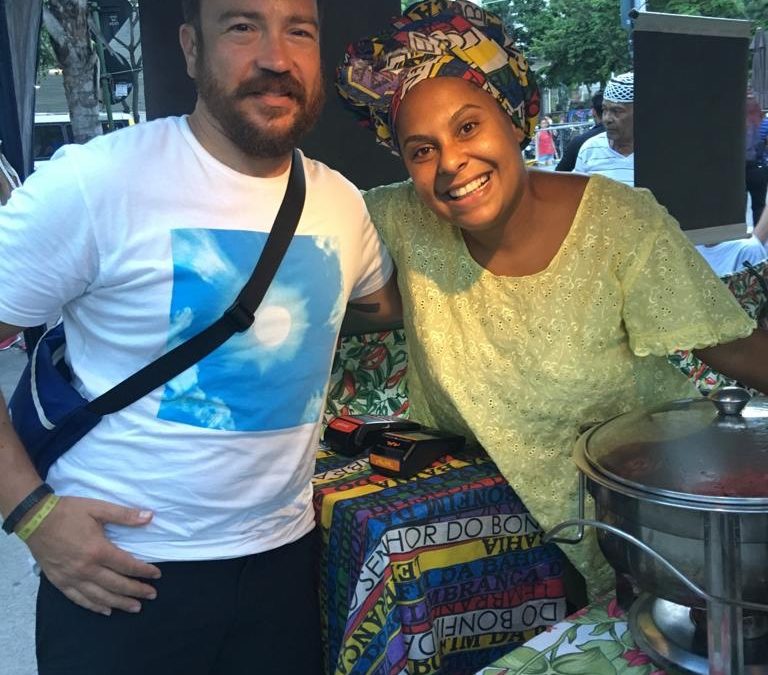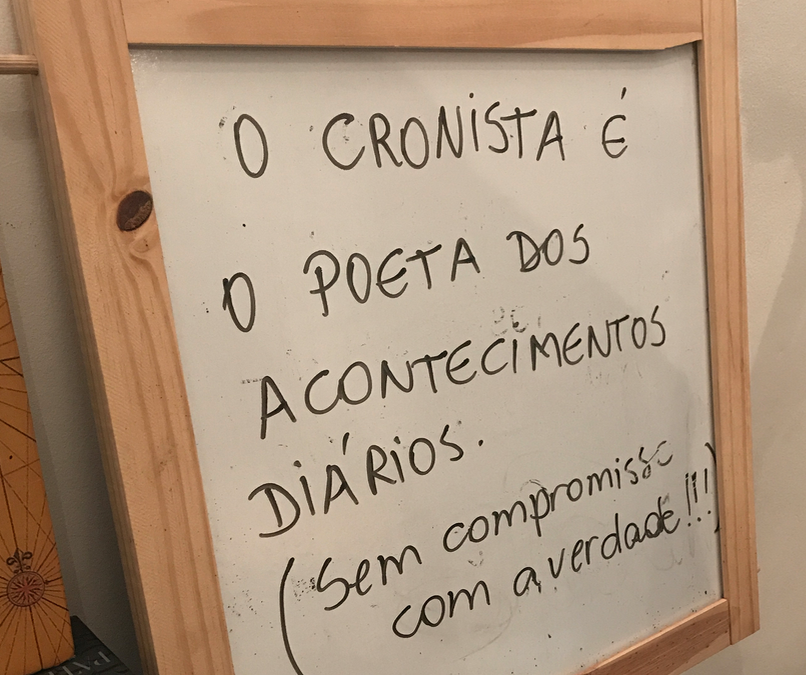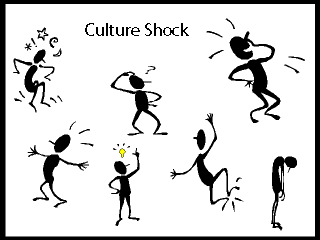


Acarajé secrets . Post do aluno Greg Grassi
The secrets of acarajé After practical experience Greg felt inspired and decided to share what he learned. By Greg Grassi Sometimes, my constant talk about food pays off. I was supposed to meet Luciana, one of my Portuguese teachers, for an individual class when she...
The family and the bank
The family and the bank “The bank manager asked about my family!!! What?!? Why?!?” I heard this at a conference for entrepreneurs from all over the world held in Lithuania. The speaker was Simon, an American who is currently one of the world’s...
How to write a good chronicle
How to write a good chronicle Last Wednesday, the writer Daniel Cariello met with students and alumni of Fala Brasil School who are writing chronicles for the book “The Look of the Other.” The book is a new project of Fala Brasil and aims to gather...



Recent Comments